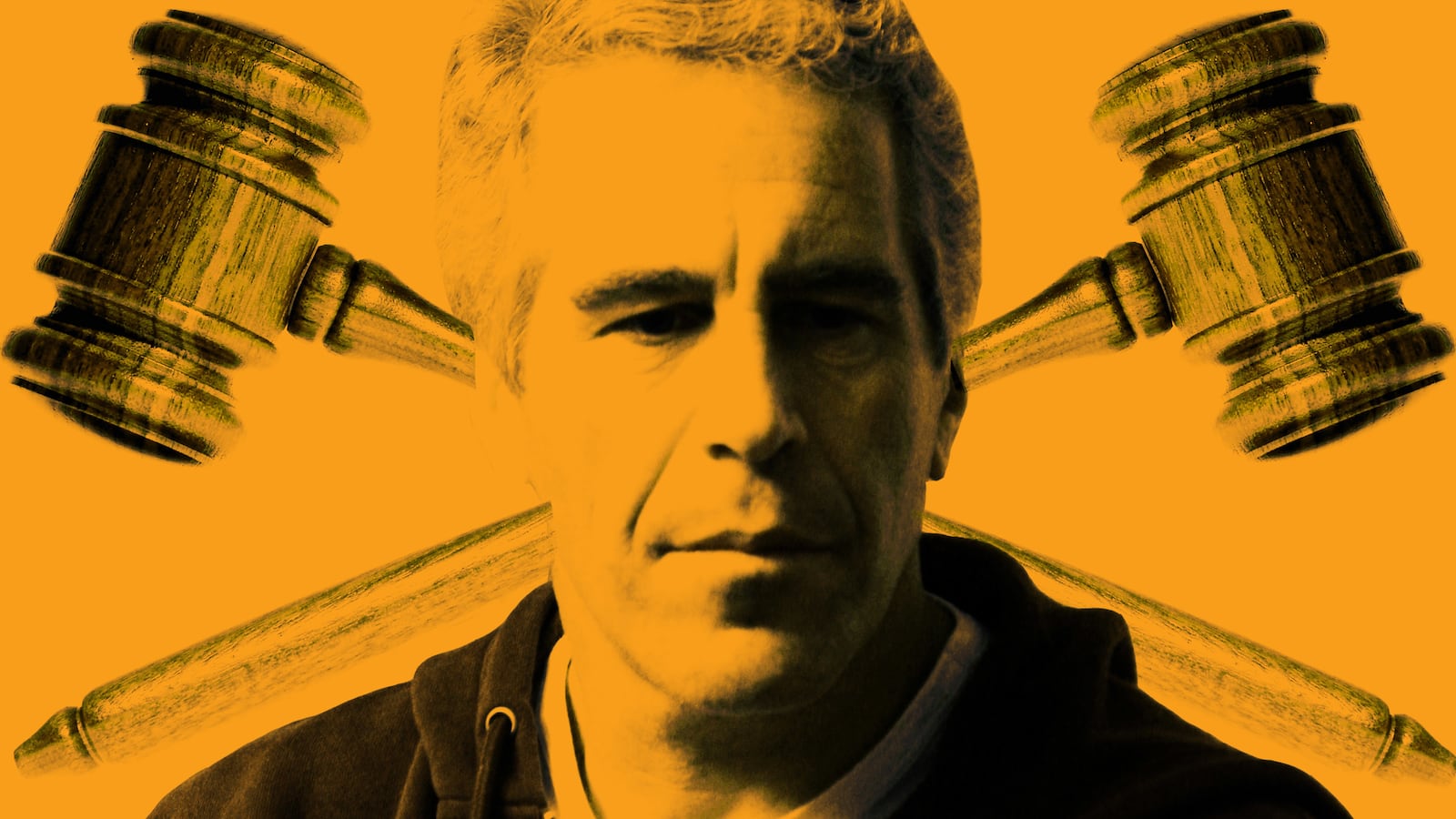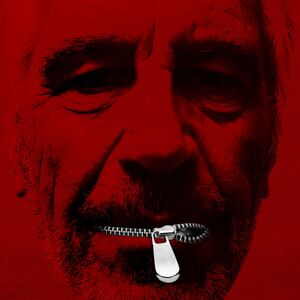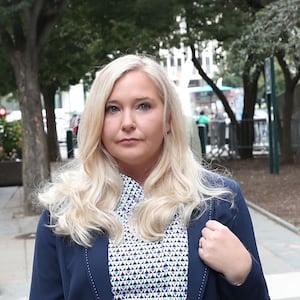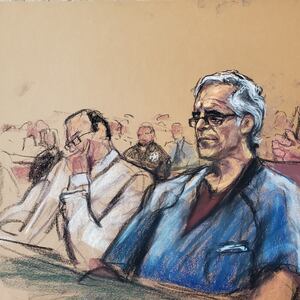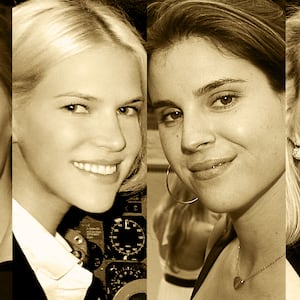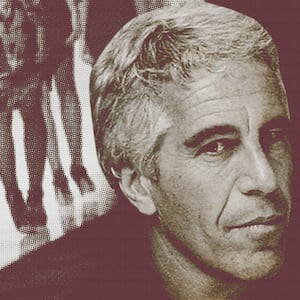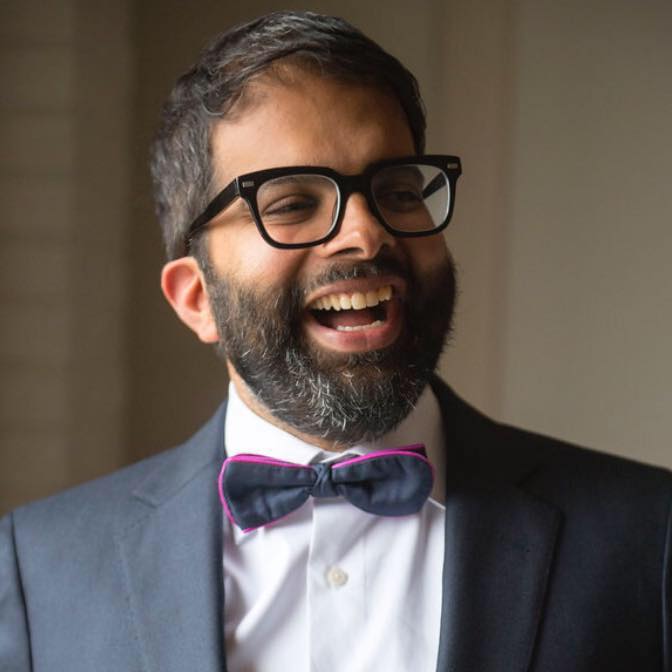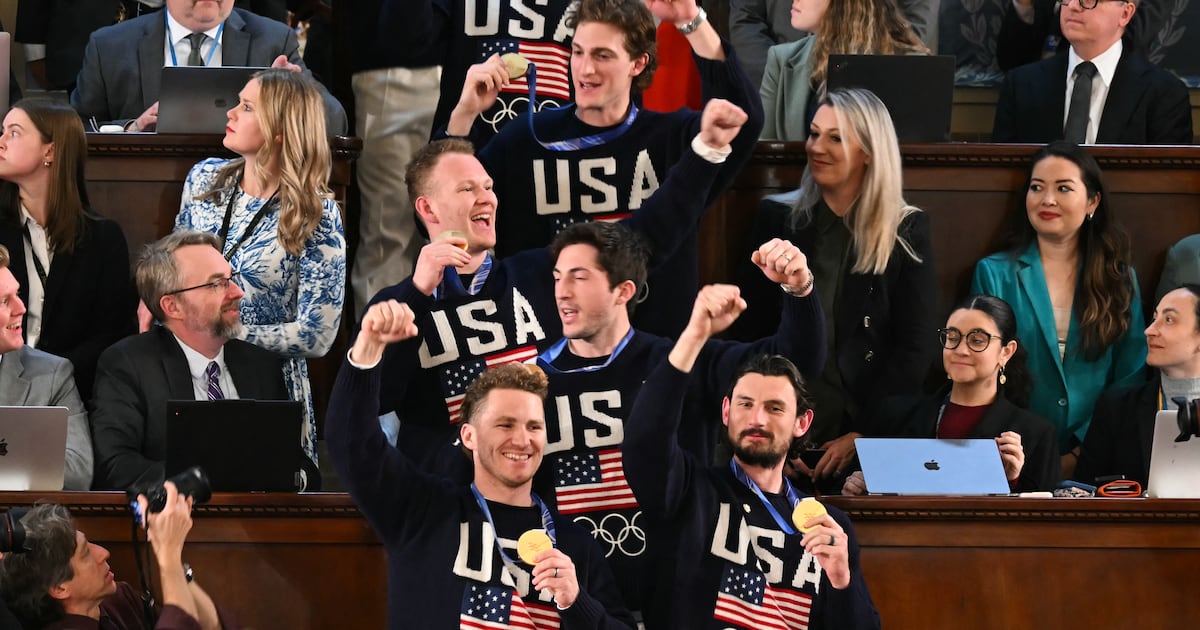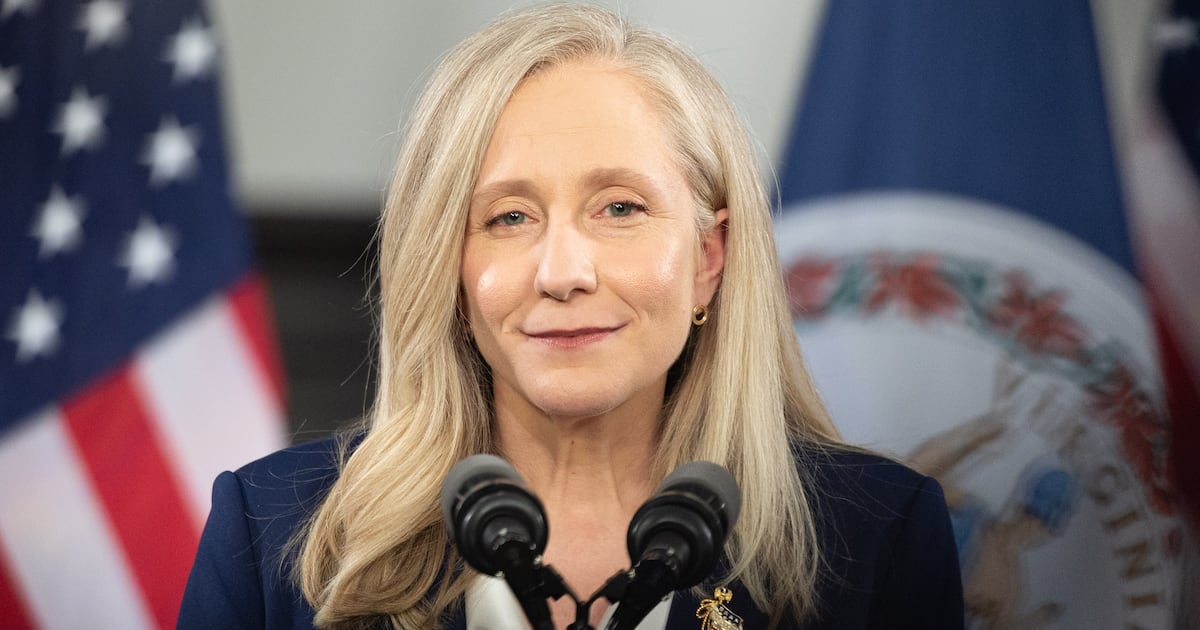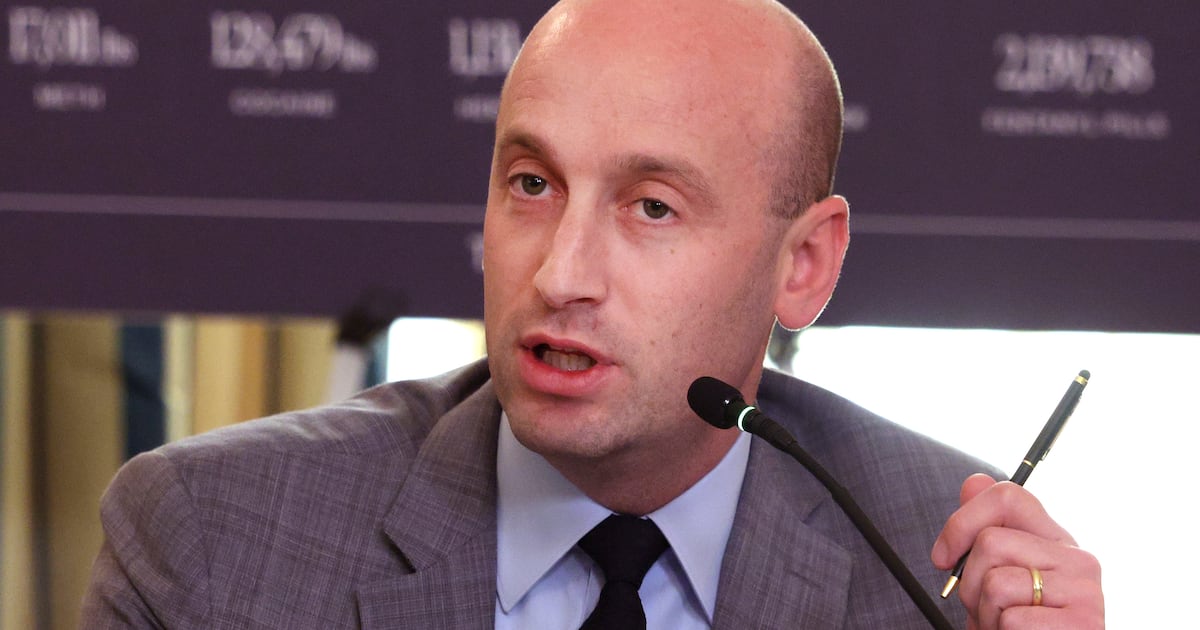It’s been more than two months since Jeffrey Epstein killed himself, but the investigation into possible accomplices is still very much alive. In recent days, federal prosecutors probing the financier’s sex-trafficking ring have been asking Epstein victims if they could serve as witnesses in the criminal case they are building.
Representatives from the U.S. Attorney’s Office for the Southern District of New York traveled to Florida for an Oct. 15 meeting with several of Epstein’s victims and their counsel. The staffers, who worked in the victim services unit, held a similar meeting in New York on Oct. 23, lawyers for the women and a law enforcement source told The Daily Beast.
Two people familiar with the investigation said that prosecutors have heard from “dozens” of witnesses or victims since Epstein’s arrest in July.
Following Epstein’s death in August, which was ruled a suicide by hanging, the Department of Justice said that it would continue to investigate anyone who helped Epstein procure underage girls or helped him to cover up crimes. A spokesman for the Manhattan U.S. Attorney’s Office declined to comment on where the probe stands, only saying that the “investigation is continuing.”
Spencer Kuvin, a Palm Beach attorney who represents two women who were abused by Epstein, said the U.S. Attorney’s Office for the Southern District of New York offered counseling services to the group of victims who gathered in Miramar, Florida.
The representatives also worked to debunk conspiracy theories, which the victims have encountered online, related to Epstein’s jailhouse suicide. According to Kuvin, prosecutors continue to battle wild speculation on how the 66-year-old money-manager died, along with rumors that he isn’t dead at all.
“The U.S. Attorney’s Office wanted to put to rest some of those conspiracy theories—that he was killed, that he’s still alive. There are people still talking about that,” Kuvin told The Daily Beast. “There are still people that think this was an absolute ruse and he’s sitting pretty in another part of the world.”
Kuvin said investigators assured the women that their probe into Epstein’s alleged co-conspirators was ongoing. The lawyer declined to comment on the identities of those suspected accomplices.
“They wanted to meet with some of the victims to discuss whether or not they could be potential witnesses in that ongoing investigation,” Kuvin said. “One of my clients is going to meet with them privately about that issue.”
During the Florida meeting, coordinators for federal prosecutors answered questions from the women, some of whom felt burned over their treatment 12 years ago, when the U.S. Attorney’s Office in Miami secretly negotiated a cushy plea deal for Epstein. Back then, the feds promised the women they’d prosecute the creepy multimillionaire; instead, they collaborated with his legal team to downgrade the charges.
“The focus really is: What are you doing now and are you honestly going to pursue the co-conspirators or are those just words?” Kuvin said.
“They’ve been wronged by the system numerous times,” Kuvin added of his clients and other victims of Epstein, “from the late 2000s all the way up to him killing himself. Every time an official comes forward and says, ‘Don’t worry. We’re going to do the right thing,’ they shake their heads and say, ‘We’ll see.’”
In New York last week, prosecutors met with victims at a federal building downtown where local FBI headquarters is housed to inform the women of their rights and offer counseling services.
Duncan Levin, a former assistant U.S. Attorney and chief of asset forfeiture at the Manhattan District Attorney’s office, said Epstein’s inner circle shouldn’t rest easy.
“There is at least some evidence that other people facilitated his crimes, and there’s obviously enough public interest in the case that [prosecutors] aren’t going to drop it just because he’s dead,” said Levin, managing partner at Tucker Levin, PLLC.
Levin said prosecutors are likely to thoroughly investigate Epstein’s alleged enablers and seek forfeiture of Epstein’s properties that were used to facilitate the sex crimes.
A bare-bones rundown of Epstein’s assets submitted by his lawyers following his arrest, and bank records obtained by prosecutors, provided a glimpse into Epstein’s net worth which is estimated at more than $550 million, but it may not be a complete accounting. The listed assets included $56 million in cash and another $500 million in properties and investments.
The properties include $85 million worth of real estate in the U.S. Virgin Islands—including his own private island—an $8.6 million Paris apartment, a $12 million Palm Beach estate, a $17 million New Mexico ranch, and his Manhattan mansion—which Epstein claimed is worth $55 million but prosecutors have said is worth $77 million.
“Justice is a slow-moving train,” Levin said. “This is par for the course. Investigations are measured in months and years not days and weeks.”
“I would be very nervous if I were somebody who helped Jeffrey Epstein at this point and would be seeking legal counsel,” Levin added.
Epstein was arrested on July 6 and charged with sex-trafficking and conspiracy to commit sex-trafficking. The indictment referred to three victims and three unnamed employees of Epstein who allegedly assisted in the sex pyramid scheme.
According to the complaint, Epstein created a “network of minor victims in multiple states to sexually abuse and exploit” and “worked and conspired with others, including employees and associates who facilitated his conduct by, among other things, contacting victims and scheduling their sexual encounters with Epstein.”
From 2002 to 2005, the indictment states, Epstein “enticed and recruited” minor girls as young as 14 to visit his mansions and engage in sex acts with him, after which he or his assistants gave the victims hundreds of dollars in cash.
It’s unclear which alleged co-conspirators prosecutors are targeting.
In one July court filing, prosecutors requested a protective order, indicating they planned to produce certain documents and materials that “would impede, if prematurely disclosed, the Government’s ongoing investigation of uncharged individuals.”
In 2008, when Epstein pleaded guilty to state charges, his non-prosecution agreement with the feds granted immunity to his alleged accomplices, “including but not limited to Sarah Kellen, Adriana Ross, Lesley Groff, or Nadia Marcinkova.”
Groff’s lawyer, Michael Bachner, previously told The Daily Beast: “At no time during Lesley’s employment with Epstein did she ever engage in any misconduct.”
Attorneys for Marcinkova told CNN last month that she was a victim herself and “is and has been severely traumatized.” They added: “She needs time to process and make sense of what she has been through before she is able to speak out.”
According to the report, Kellen’s spokeswoman had a similar explanation. “Very soon after Sarah was brought into Epstein's world, he began to sexually abuse her, and this abuse went on for years. Sarah continues to struggle with the trauma of her experiences and has chosen not to speak publicly at this time.”
Ross hasn’t spoken publicly on the allegations.
One lawsuit, filed by a Jane Doe in September against Epstein’s estate, describes Kellen and Groff as a pair of adult employees who “specifically facilitated his abuse.” The women scheduled the girl’s visits to Epstein’s Manhattan mansion and “often asked Doe to bring other girls with her,” paying her every time she did so.
Meanwhile, Groff, a former assistant to Epstein, is facing a lawsuit from Jennifer Araoz, who says she was in high school when Epstein raped and abused her. A second assistant, Cimberly Espinosa, is also listed as a defendant in the case.
Araoz’s complaint also targets Epstein’s alleged madam, Ghislaine Maxwell—who’s kept a low profile since the hedge-funder’s arrest and has long faced accusations of recruiting underage girls and taking part in sexual abuse herself.

Ghislaine Maxwell.
Mark Mainz/GettyAnother lawsuit, recently filed by Priscilla Doe, alleges that “in addition to providing sexual instruction, Ghislaine Maxwell further made sure that Plaintiff and the other young females were constantly on call to sexually service Jeffrey Epstein.”
Maxwell isn’t the only Epstein friend under scrutiny in the press. Authorities in France are looking into sexual misconduct claims against talent scout Jean-Luc Brunel, accused in civil court filings of procuring young models for Epstein to exploit.
“Jeffrey Epstein has told me that he has slept with over 1,000 of Brunel’s girls, and everything that I have seen confirms this claim,” said accuser Virginia Giuffre in a 2015 affidavit. Giuffre says she was 16 when Maxwell recruited her into Epstein’s trafficking ring.
In response, Brunel issued a statement denying Giuffre’s claims, saying he never participated “directly nor indirectly, in the actions Mr. Jeffrey Epstein is being accused of.”
Last year, Epstein may have attempted to buy the silence of alleged co-conspirators just as his name re-emerged in the press.
Prosecutors say Epstein wired payments to two unnamed women—one received $250,000 while the other got $100,000—shortly after the Miami Herald’s exposé on Epstein’s 2007 sweetheart deal. Those individuals were listed as possible co-conspirators in Epstein’s non-prosecution agreement, the U.S. Attorney’s Office said in July.
At a bail hearing that month, Assistant U.S. Attorney Alex Rossmiller told the court that “after seven days of this case being public following months of a covert investigation, the evidence is already significantly stronger and getting stronger every single day.
“Many individuals identifying themselves as victims and witnesses have contacted the government,” Rossmiller continued, “and we are in the process of receiving and corroborating this additional evidence.”
Brad Edwards, an attorney who sued the government on behalf of victims over Epstein’s lenient plea deal, said, “I assume that if there are others that should be held accountable for crimes that can still be prosecuted, then they will.”
Edwards said he trusts that New York prosecutors “are trying to leave no stone unturned.”
Last month, U.S. District Judge Kenneth Marra refused to scrap the non-prosecution agreement that shielded Epstein and his alleged co-conspirators from facing serious charges—despite Marra’s ruling that the agreement was illegal.
Marra also denied the victims’ requests for other relief: attorneys’ fees, a hearing where victims could speak, and the release of documents including grand jury materials. The decision was part of a 2008 lawsuit Jane Does 1 and 2 filed against the United States, alleging the feds violated the Crime Victims’ Right Act.
Courtney Wild, who has come forward as Jane Doe 1, has appealed to the U.S. Court of Appeals for the 11th Circuit. Oral arguments are scheduled for January.
“A ruling rescinding the immunity provisions would have permitted the victims to confer with government prosecutors about the possibility of obtaining prosecution of Epstein’s co-conspirators in the Southern District of Florida — i.e., would have afforded them their rights under the CVRA,” Wild’s appeal states.
